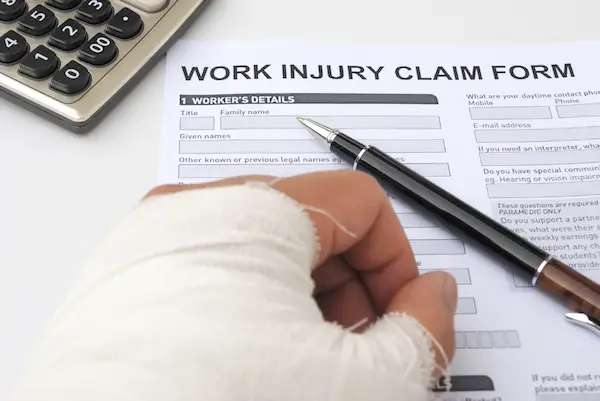Suffering from a work-related injury can be traumatic. No one expects to be injured on the job, and when a federal worker experiences an injury at work, they often don’t know what to do next.
Federal workers’ compensation is entirely different from state’s workers’ compensation, and there are few attorneys who have specialized experience in the field. Finding legal representation for a federal worker compensation claim can be troublesome at best.
In case you ever find yourself in a predicament regarding federal workers’ compensation, here is a general overview of the benefit, and what the adjudication process entails.
What is OWCP Workers’ Compensation?
The U.S. government provides benefits to civilian federal workers who become injured or ill because of their job duties. Workers’ dependents may also be eligible to receive benefits if a work-related injury or disease causes a loved one’s death.
What Agency Handles the Claim?
The Federal Employees Compensation Act (FECA) is the governing law over federal workers’ compensation, is administered by the U.S. Department of Labor, Office of Workers’ Compensation Programs (OWCP).
If you are injured at work, you will initially file your claim with the OWCP and a claims examiner will be assigned to review your file.
What Types of Benefits Are Available?
Medical Benefits
If you are injured while at work, the OWCP may cover medical costs including treatment, therapy, medications, devices and transportation costs, without you having to cover co-payments or use your private insurance. Though you may choose your initial care provider, the OWCP must approve any changes in providers. Medical costs also include costs of any vocational rehabilitation services that are necessary to help you return to work.
Temporary Total Disability
In cases of traumatic injuries, you may receive a continuation of your full pay (COP) for the first 45 days of disability. Otherwise, if you sustain a disabling, job-related injury or illness, you may be eligible to receive ⅔ of your pre-disability wages, or ¾ if you have dependents.
Permanent Effects
If you suffer from a specific job-related permanent partial impairment, such as the loss of the use of a limb, after you have exhausted temporary total disability benefits, you may be entitled to what’s referred to as a “schedule award.” A schedule award consists of monetary payments for a prescribed number of weeks set by statutes and regulations. The amount of money you receive will depend on which body part is impaired, the percentage of permanent impairment, and your wage rate.
Death Benefits
Survivors who are dependents of employees killed on the job may be eligible to recover death benefits, including the spouse, children and dependent parents, siblings, grandparents and grandchildren. The amount depends on the survivor’s age and relationship to the deceased employee. A deceased workers’ family may also receive up to $800 in burial expenses.
What do I need to prove to obtain federal workers’ compensation?
For a claims examiner to approve your OWCP federal workers’ compensation claim, the submitted evidence must prove the following five factors:
- Notice of your injury or death was provided in a timely manner. Formal notice must be sent to the OWCP within thirty days of the injury or death. Typically, the employing agency submits the written notice to the OWCP. The statute of limitations for your federal workers’ compensation claim is three years from the date of injury or death. With few exceptions, you must meet this deadline otherwise your claim will become invalid.
- Your injury or illness occurred while you were employed by the federal government. You have to prove the injury or illness occurred while you were employed with the federal government. Generally, your supervisor’s report of your accident or injury will suffice.
- You must prove you were injured. The claims examiner will look at two factors: First is the factual inquiry, where the claims examiner must determine the event or accident did occur. Second, having an injury doesn’t automatically prove it occurred while on the job, the claims examiner will review the medical records to ascertain the injury or death diagnosis arose from the factual inquiry.
- The injury or death must have occurred due to your performance on the job. If you are injured while goofing off at work, you will not likely qualify for workers’ compensation benefits. You must prove the injury was a result of an acceptable, job-related activity.
- The injury or death must be causally related to what you were doing on the job. For instance, if you were working on a government project installing light fixtures and you fell off the ladder, which resulted in a broken arm, your injury would have been directly caused by you performing your job.
Aggravated Medical Conditions
There are also cases where you may have a pre-existing injury or medical condition, which is aggravated by an event that occurred on the job. A key difference between federal and state workers’ compensation is the matter of apportionment. In states’ workers’ compensation, an aggravated injury or condition may only be partially covered by your employing agency. In contrast, federal workers’ compensation claims only take into account the employee’s current state of wellbeing. If you had suffered from a back injury years ago, but heavy lifting required by your job duty aggravates the condition, then the OWCP may cover all of your required medical needs, rather than just a portion of it. Regardless, you must have adequate medical records and a legitimate diagnosis from a qualified physician.



